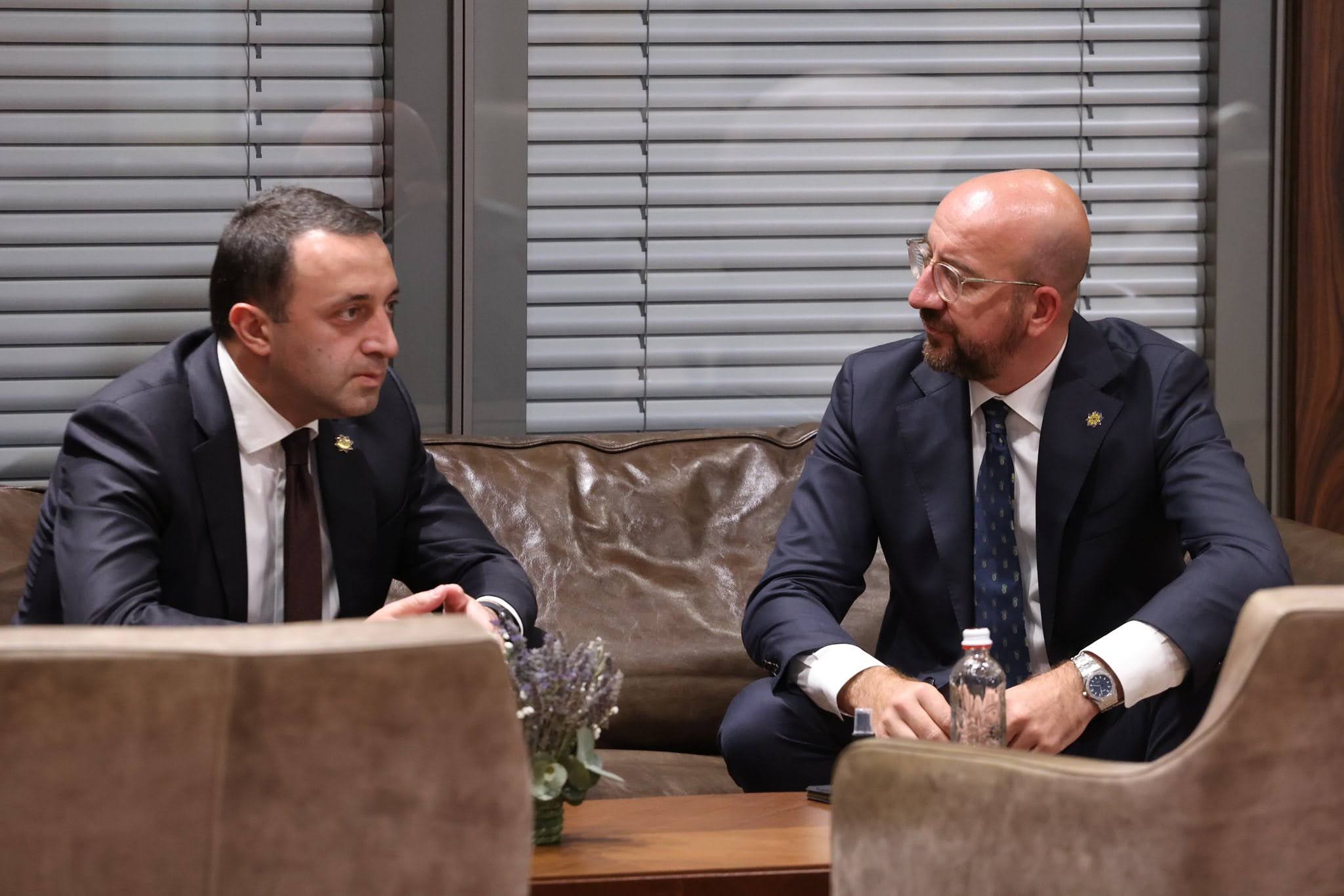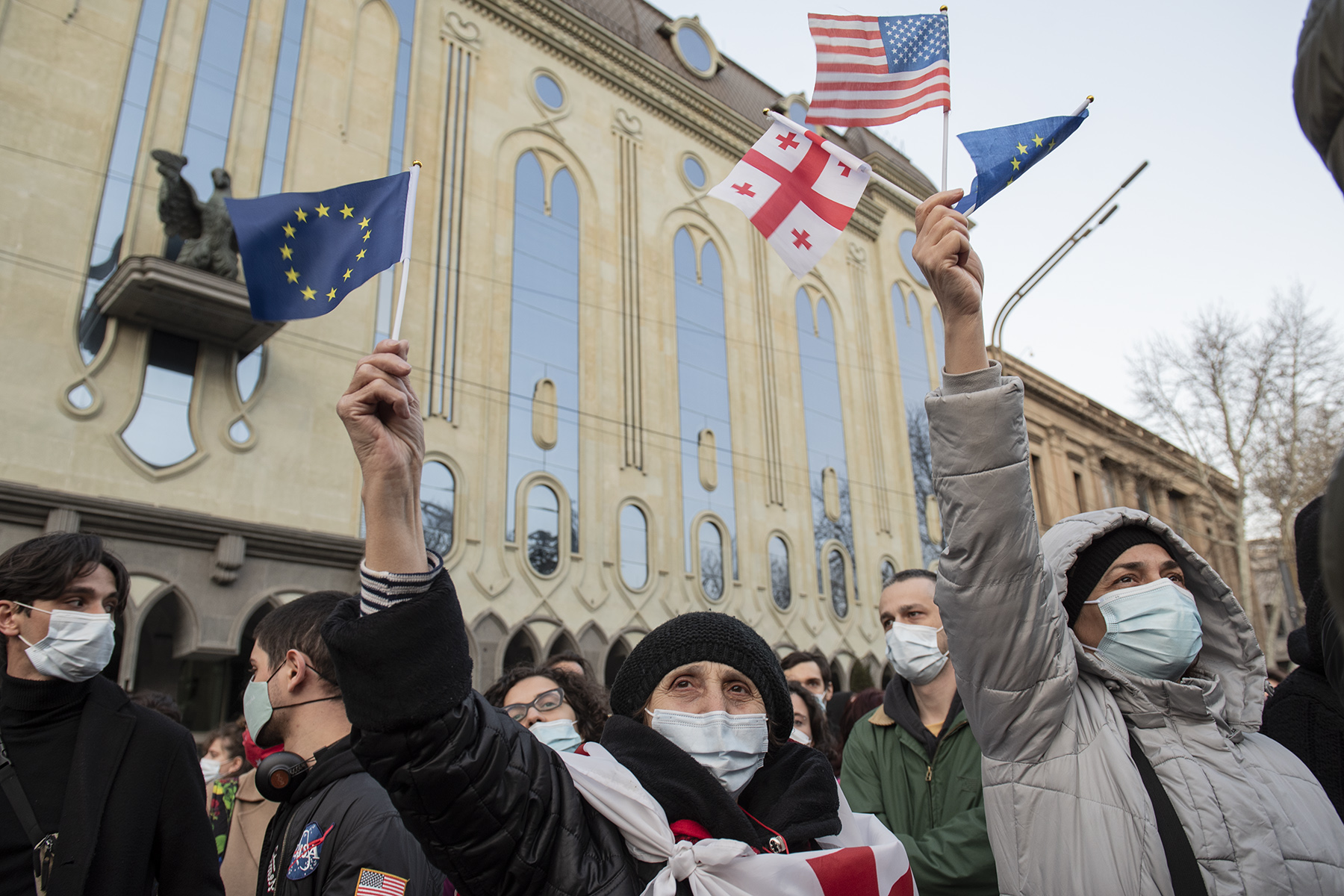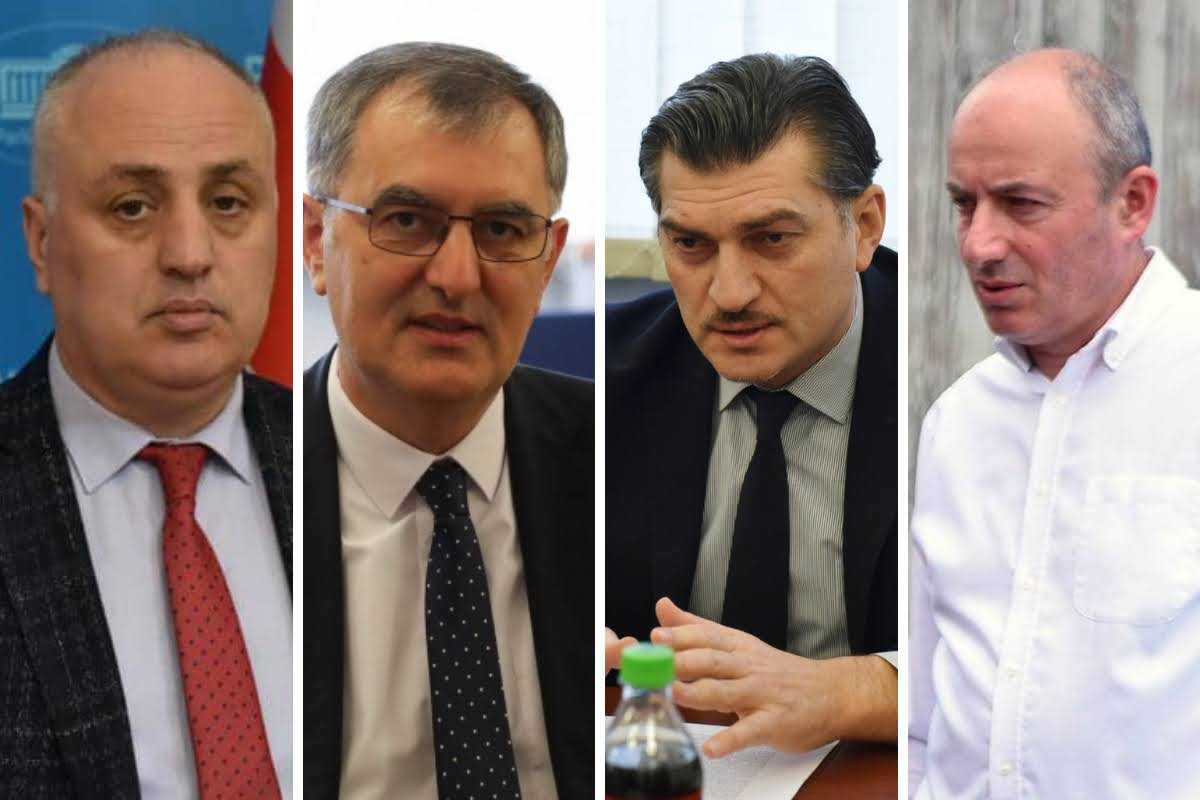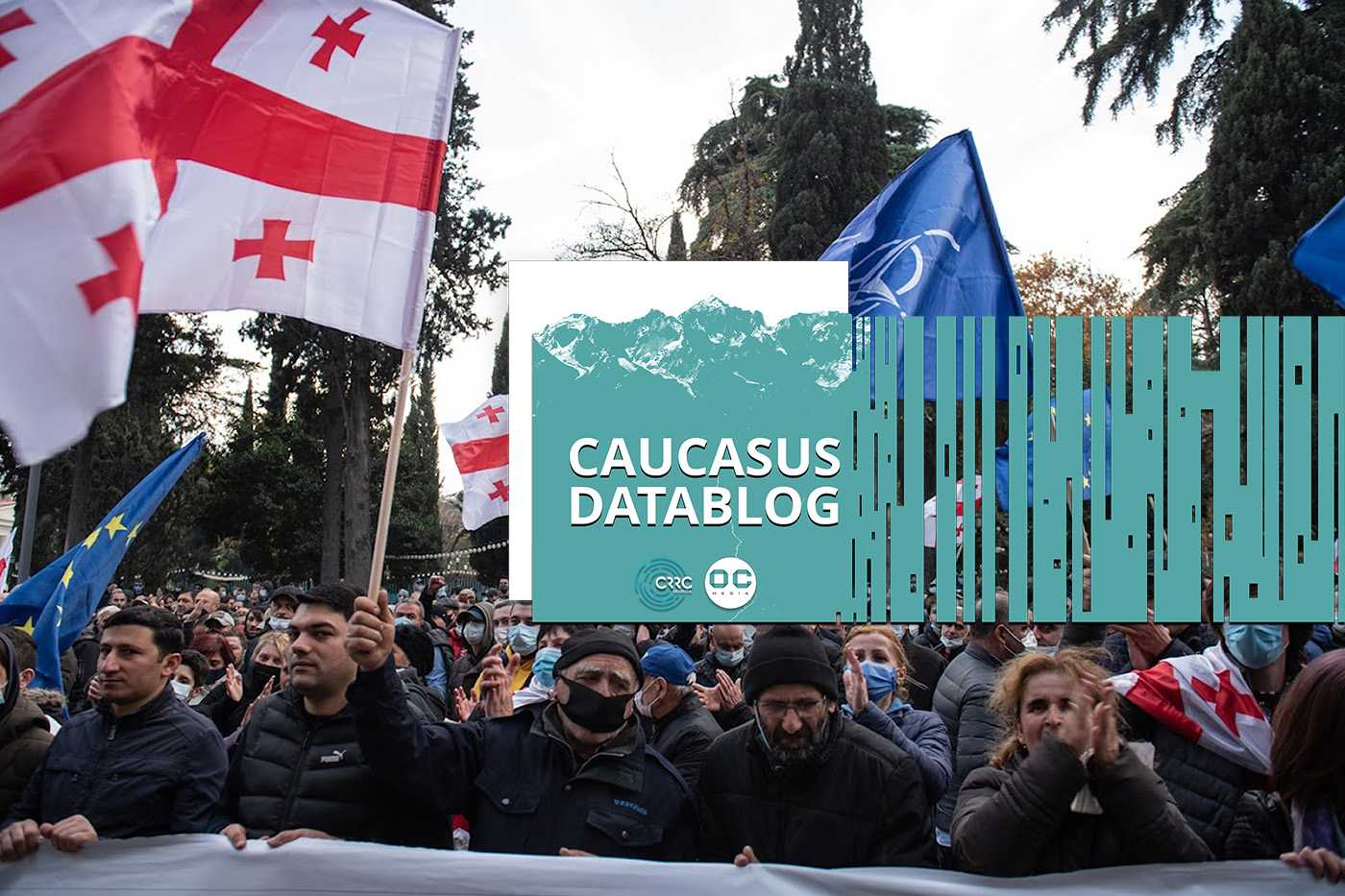
The Georgian government has said they would not seek funds from the EU’s Macro Financial Assistance programme, citing recent economic growth and a will to address the country’s external debt. The decision follows pressure from the EU on Georgian officials to pursue agreed reforms.
Georgian Prime Minister Irakli Gharibashvili announced on Tuesday that there was a ‘high probability’ that Georgia would not need the next disbursement from the EU’s Macro-Financial Assistance Programme as the country was on its way to economic recovery.
‘We are grateful to the EU for all their help that they provided during the pandemic, and generally, for everything they are doing for us’, Gharibashvili said. ‘We have already decided to abstain from taking this second instalment as a debt’.
Speaking to journalists on Tuesday morning, the PM underlined that the upcoming €75 million from the EU was ‘not a grant or help’, but ‘debt’, as was the previous installment.
In November, Georgia received €100 million ($118 million) in assistance from the EU, including €95 million in loans at favourable rates, according to the EU Delegation to Georgia. Of this, €75 million ($89 million) represented the first half tranche of the EU’s latest Micro-Financial Assistance Programme for Georgia.
Acting Head of the EU Delegation Julien Crampes stated later that day that they respected the Georgian government’s decision.
‘At the same time, we note that Georgia failed to sufficiently address the condition for this macro-financial assistance, and notably, to increase the independence, accountability, and quality of the judicial system’, he said.
[Read more on OC Media: Georgia’s ‘clan of judges’ hits out at ‘foreign interference’]
Crampes said the money, including the second instalment planned to be made before 30 September, was ‘intended to be available for the benefit of the Georgian people’. The EU added that their ‘assistance to Georgia remains conditional on progress on key reforms’.
Gharibashvili said that Georgia’s recent economic growth had made it possible to mobilise an ‘additional ₾1 million ($320,000)’ in the state budget.
He added that the economy was estimated to have grown an average of 12.2% year-on-year in the first seven months of the year and that they expected double-digit growth for the year. His statement was quickly followed by a report from the National Statistics Office confirming the estimated real GDP growth of 12.2% for January-July.
According to the World Bank latest forecasts, Georgia’s real GDP growth in 2021 is expected to be only 6%, following an estimated 6.1% contraction in 2020.
Georgia’s Finance Ministry reported earlier this summer that as of June, Georgia’s total external debt was $8 billion.
After the pandemic broke out, Georgia took on an additional €1.7 billion ($2 billion) in foreign debt to tackle it.

Ten Georgian watchdog groups, including Transparency International Georgia and the Georgian Democracy Initiative slammed the Prime Minister’s statement accusing the ruling party of ‘once again refusing to fulfil its commitments to the European Union’ and ‘significantly undermining the country’s democratic development and international reputation’.
Conditional on reforms
Opposition groups the United National Movement (UNM), European Georgia, Girchi — More Freedom, Lelo, Droa and For Georgia were also quick to condemn Gharibashvili’s statement. Several claimed that the government had tried to ‘reject’ the aid before being formally denied it for not pursuing reforms.
This whole thing about EU macro-financial assistance is about the ruling party trying to retain influence over the justice system at any cost, which GD perceives as the most important after losing power in the transitional, post-election period.
— Natia Mezvrishvili (@N_mezvrishvili) August 31, 2021
Since late 2020, Georgian Dream has been repeating their plan to apply for EU membership by 2024, an intention that has been met with scepticism from several of Georgia’s foreign allies.
The Prime Minister’s rejection came a week after EU Council President Charles Michel hinted that the aid may be conditional on Georgia’s commitment to pursuing reforms.
‘The deadline for disbursement of macro financial assistance is looming and it is time for the Georgian government to demonstrate its commitment to the agreements and notably the reform agenda’, Michel said in a tweet on 24 August, a day after meeting with the Georgian PM on the sidelines of the Crimea Platform Summit in Ukraine.
By ‘agreement’ Michel referred to the 19 April deal he brokered between the government and several opposition parties, which Georgian Dream unilaterally abandoned on 29 July.
[Read more on OC Media: Georgian Dream withdraws from EU-brokered deal with opposition]
Gharibashvili accuses the opposition of ‘sabotaging’ Georgia’s path towards the West
While abandoning the 19 April agreement, Georgian Dream maintained that they would still pursue a number of the agreed reforms. However, the party backtracked on the key promise to call new parliamentary elections if they garnered less than 43% of the popular vote in October’s local elections.
Parliamentary speaker Irakli Kobakhidze reiterated on Sunday that there would be no early elections based on the local election outcome ‘even if the Georgian Dream gets 1%’.
Despite such statements, most opposition groups have continued to label the 2 October vote a ‘referendum’ on whether to hold early elections in 2022.
Rejecting the EU aid on 31 August, Gharibashvili also rebuked what he called ‘pernicious’ and ‘subversive’ attempts by political opponents to ‘sabotage’ Georgia’s path towards the West.
Briefing the media soon after his statement, Georgian Dream’s political secretary, Shalva Papuashvili, also warned the public against what he alleged was an intention by the opposition to make claims of election fraud instead of trying to win over voters.









